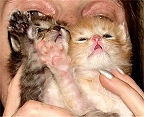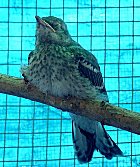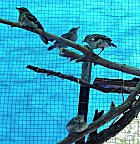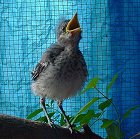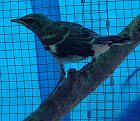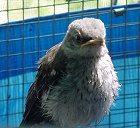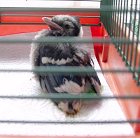Common Myths and Facts about Birds:
Fact: Although some birds do eat worms, best example the American Robin, most birds cannot handle the parasites associated with them.
Myth: Baby birds that have been touched by humans will be abandoned by their parents
Fact: As far as songbirds are concerned, they have a very poor sense of smell and will return to young as soon as we humans leave them be.
Myth: Give baby birds water so they don't get dehydrated
Fact: Never give a baby bird water alone as they cannot close their airway to allow it to pass into their crops. They drown easily and their air sacks are very susceptible to bacterial infections.
Moisten bread for a temporary solution, pieces of fruit or mix a baby bird mash into a paste with water and place it in the crop with a 1cc syringe, without the needle. They will gape for vibration or peeping sounds. Insert the syringe in past the windpipe and inject it slowly into the crop. If any backs up into the throat, clear it with a Q-Tip. The windpipe is the hole directly behind their tongue.
Myth: Birds imprinted on humans should never be released
Fact: A bird that has imprinted on people is at a definite disadvantage for the first few weeks of freedom. Any that outlast these weeks have as good a chance as any other. You still have to supplement the diet of a freed bird at regular intervals through the day, they will learn to forage and will imprint on it's own kind in time.
Myth: My cat brought us a bird, but I rescued it and it is fine
Fact: Many times a bird that has suffered a cat or other animal attack appears fine at first but dies within 24 hours of the attack. This is usually due to a bacterial infection caused by the animal's saliva. Birds may be in great condition a day after an attack, only to die an hour later.

